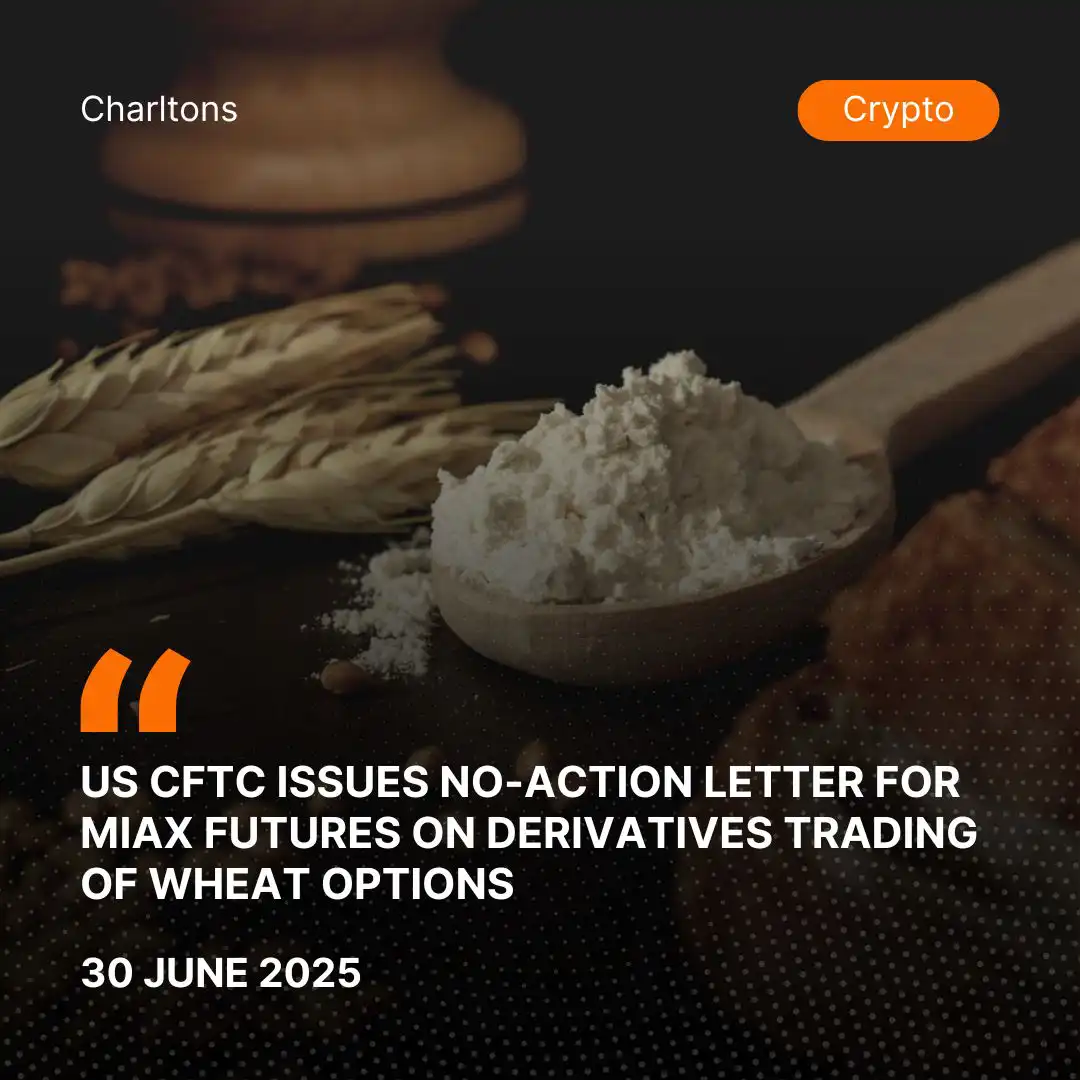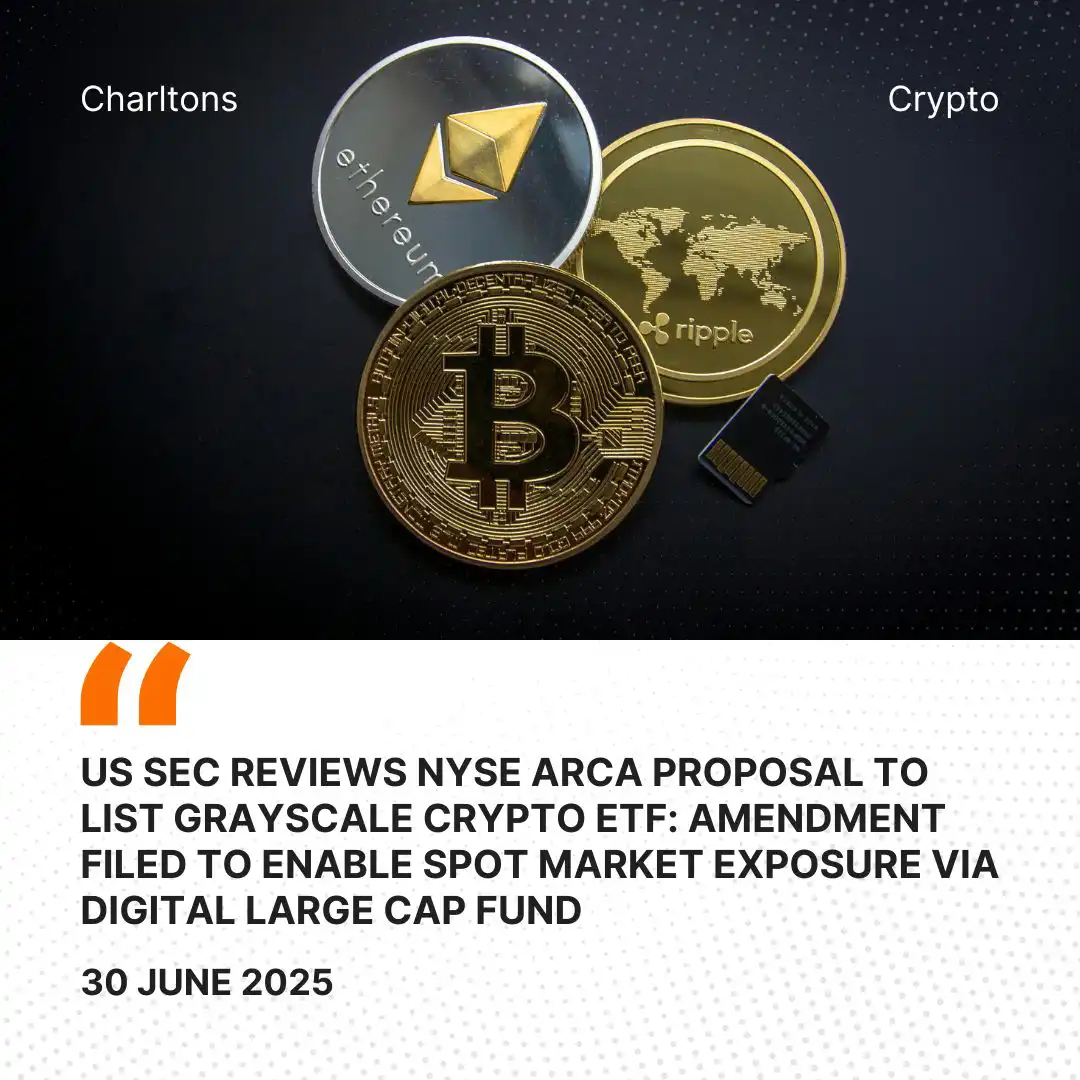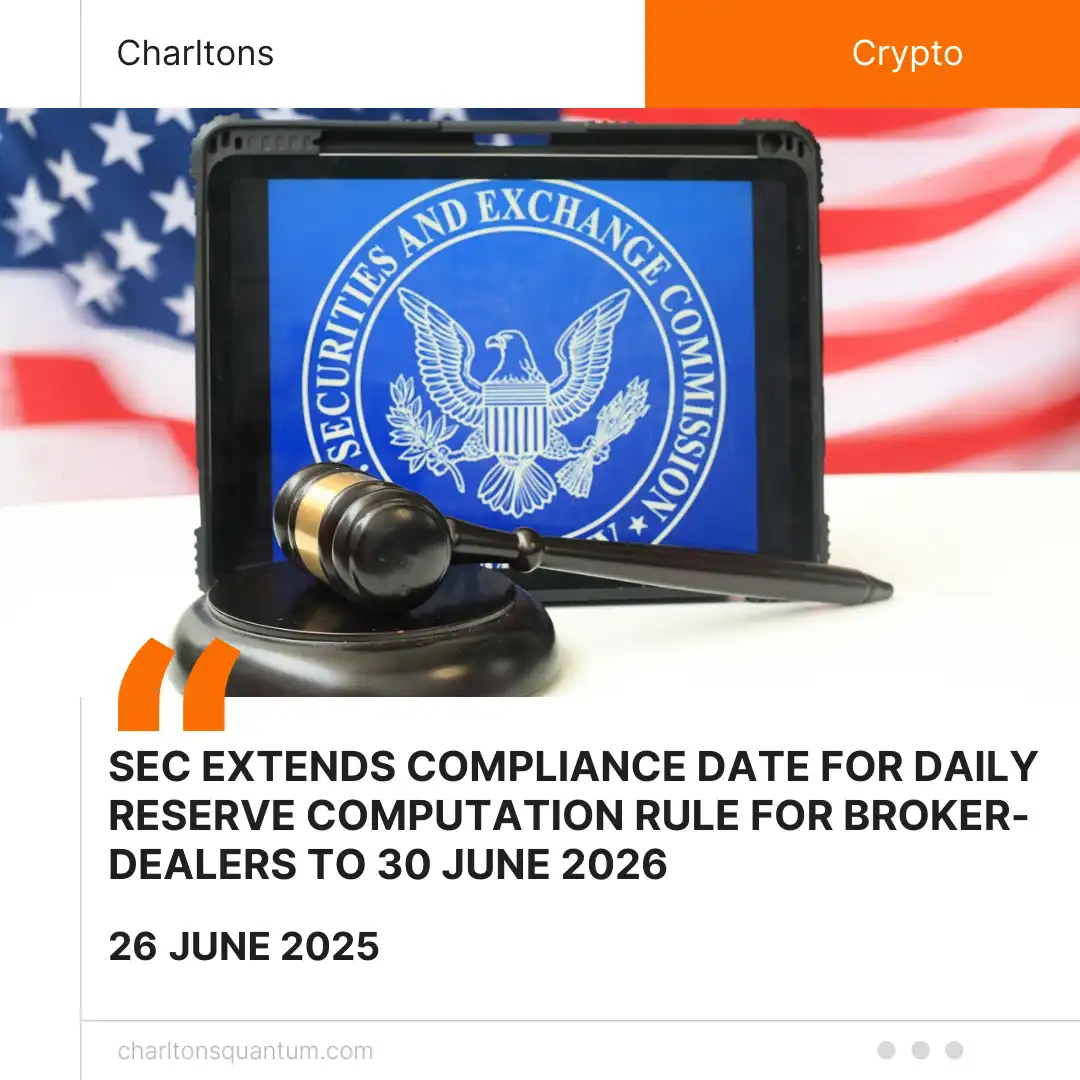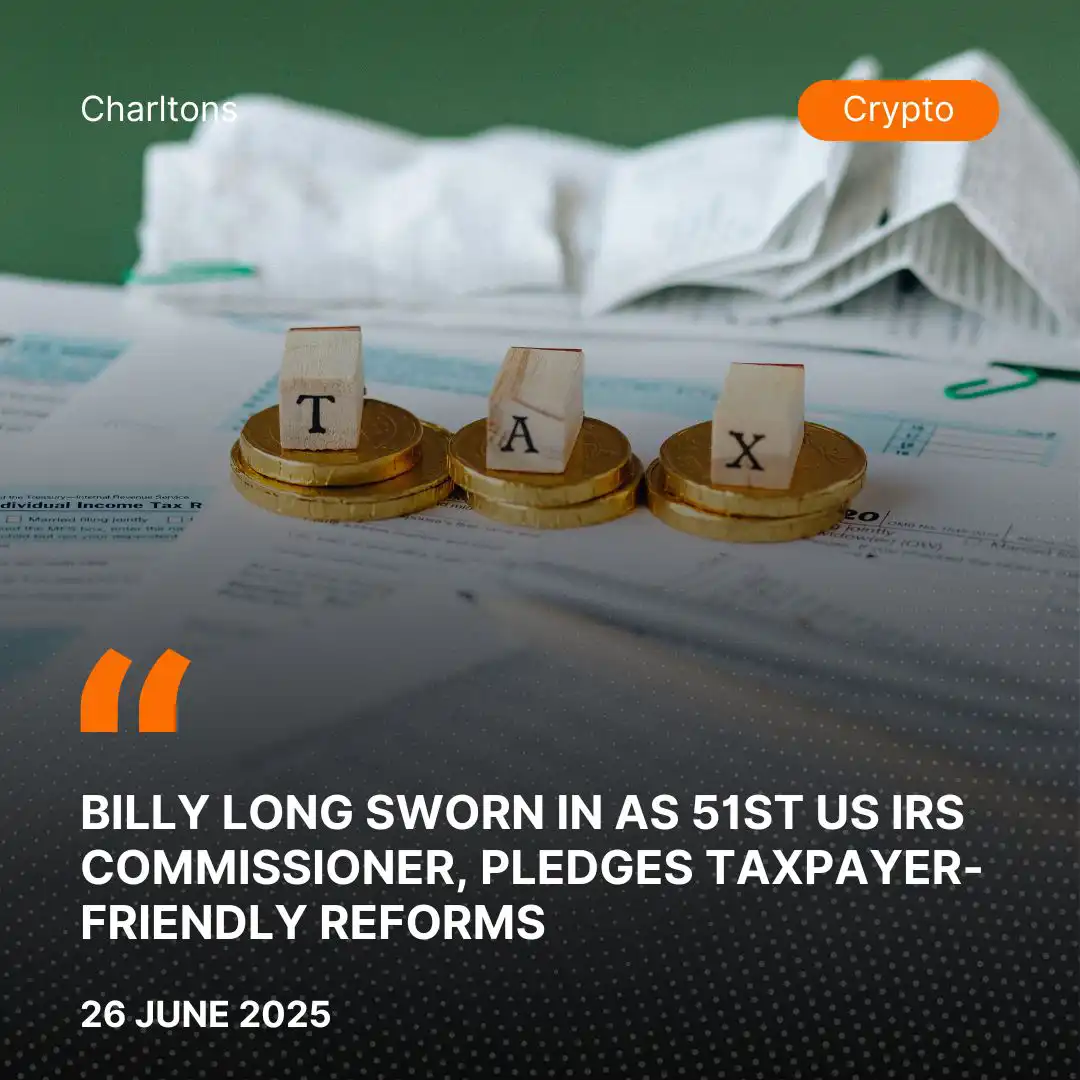
Hong Kong Monetary Authority Partners with Banco Central do Brasil on Ground-breaking Cross-Border Tokenisation Initiatives
On 28 October 2024, the Hong Kong Monetary Authority (HKMA) announced a collaboration with Banco Central do Brasil (BCB) to drive cross-border tokenisation innovation, linking Hong Kong’s Project Ensemble Sandbox and Brazil’s Drex CBDC pilot programme. This partnership aims to establish standards in digital finance, targeting areas like trade finance and carbon credit settlement.
- Building on a 2018 Co-operation Agreement, HKMA and BCB seek to create an integrated, efficient financial system by connecting their respective CBDC platforms for payment-versus-payment (PvP) and delivery-versus-payment (DvP) transactions.
- The HKMA’s Ensemble Sandbox, launched in August 2024, supports digital financial technology testing in areas like investment funds, liquidity management, sustainable finance, and trade finance.
- Brazil’s Drex platform, entering its second pilot phase, aims to establish a tokenised financial ecosystem within Brazil, involving over seventy Brazilian financial institutions in its development.
- The partnership enhances capabilities for secure cross-border transactions, particularly in trade finance and carbon credit settlements, fostering transparency and environmental sustainability.
- HKMA Chief Executive Eddie Yue highlighted this collaboration as a major step forward, with shared goals of leveraging technology to advance the financial industry.
- Banco Central do Brasil Governor Roberto Campos Neto expressed enthusiasm for the collaboration, emphasizing its importance in developing a globally integrated financial market.
To read this news in detail click here
Hong Kong Monetary Authority and Bank of Thailand Launch Collaborative Cross-Border Tokenisation Initiatives
On 28 October 2024, the Hong Kong Monetary Authority (HKMA) and the Bank of Thailand (BOT) announced a collaborative effort to drive cross-border tokenisation initiatives under Project Ensemble and Project San, aiming to streamline cross-border trade payments, facilitate carbon credit markets, and enhance financial interoperability via distributed ledger technology.
- Building on a Memorandum of Understanding signed in 2019, this partnership leverages successful projects like Project Inthanon-LionRock and Project mBridge to advance digital financial solutions and address the needs of a global economy.
- Focusing on payment-versus-payment and delivery-versus-payment mechanisms, the collaboration aims to reduce intermediaries, lower transaction costs, and increase trade efficiency while supporting transparent, tokenised carbon credit markets.
- Through a proof of concept under Project Ensemble and Project San, HKMA and BOT will test interoperability and scalability of distributed ledger technology systems to support secure, efficient tokenised asset transfers across borders.
- HKMA’s Ensemble Sandbox, launched in August 2024, and BOT’s Project San, initiated in June 2024, provide environments for testing tokenisation across areas like fixed income, green finance, and supply chain finance, allowing both regions to develop compliant, cross-border tokenised solutions.
- Howard Lee, HKMA’s Deputy Chief Executive, emphasized the shared vision to expand the use of CBDCs in cross-border applications, expressing confidence in the partnership’s potential to deliver insights for both jurisdictions.
- Mrs. Alisara Mahasandana, BOT’s Deputy Governor, highlighted the mutual benefits, noting that the collaboration will advance tokenisation domestically and internationally, aligning with the regulatory and operational needs of both regions.
To read this news in detail click here
Latest Developments in WazirX Restructuring: Fifth Affidavit Filed in Singapore High Court
On 7 November 2024, Nischal Shetty, Director of Zettai Pte Ltd, filed his fifth affidavit with the Singapore High Court in compliance with restructuring procedures under Singapore’s Insolvency, Restructuring, and Dissolution Act. This update details WazirX’s financial position, creditor engagements, and future restructuring plans amidst ongoing insolvency proceedings following a significant asset shortfall due to a cyber-attack in July 2024.
- Zettai Pte Ltd, managing the WazirX platform, entered a court-sanctioned restructuring in September 2024 to address a 45% asset deficit. The Singapore High Court granted a four-month moratorium on creditor claims, effective until 26 January 2025, providing Zettai time to focus on asset reorganization.
- Shetty’s affidavit includes unaudited financial statements, highlighting the Company’s fiscal health while excluding disputed assets due to ownership uncertainties. These statements were shared during the 4th Creditors’ Townhall on 6 November 2024, a session designed for transparency and creditor engagement, featuring updates on financial recovery and funding efforts.
- At the recent townhall, Zettai introduced tools like the Scheme Timeline Calculator, enabling creditors to track restructuring milestones. Zettai’s collaborative approach emphasizes ongoing creditor involvement in shaping the restructuring.
- Interest from potential “white knight” investors has emerged, with discussions focused on securing liquidity and reactivating exchange operations to support creditor recovery.
- Creditors have shown cautious optimism, prioritizing early liquidity options (including a secondary debt market), asset rebalancing, and efforts to recover cyber losses. Proposals include distributions in token choices, recovery of illiquid assets, and exploring revenue-sharing opportunities if the WazirX platform resumes.
- Zettai plans to launch an “asset allocator simulator” soon, providing creditors with insights into asset rebalancing. Active participation from the Committee of Creditors is essential, although some members initially identified as inactive are expected to take an active role in supporting consultative decisions throughout the restructuring process.
To read this news in detail click here
Australian Court Charges Former CEO of AI Marketing Firm Metigy for Investor Misleading and Position Misuse
On 8 November 2024, David Fairfull, ex-CEO of the AI marketing firm Metigy, appeared in Sydney’s Downing Centre Local Court to address charges of misleading investors and exploiting his director position for personal gain. The Australian Securities and Investments Commission (ASIC) has alleged that Fairfull exaggerated revenue and income figures while raising investor funds for Metigy from 2018 to 2021 and improperly leveraged his authority to secure a personal loan, breaching his fiduciary duties under the Australian Corporations Act.
- Fairfull faces allegations under section 1041E(1) of the Australian Corporations Act for false statements to investors and section 184(2) of the Australian Corporations Act for dishonest misuse of his directorial position for personal benefit.
- ASIC’s investigation highlights the crucial role of ethical conduct and transparency in AI-led businesses, with ASIC Deputy Chair Sarah Court emphasizing directors’ responsibility to ensure governance integrity and accuracy in investor communications.
- This case sets a regulatory benchmark within Australia’s growing AI industry, underscoring the standards of transparency and ethical responsibility expected from leaders in AI companies.
- The prosecution is part of ASIC’s oversight of AI-driven businesses and their corporate governance practices, particularly as AI increasingly influences business models and attracts a wider investor base.
- Fairfull’s case has been referred to the Commonwealth Office of the Director of Public Prosecutions, with proceedings scheduled to continue on 10 December 2024.
- Australian regulatory framework around AI, promoting ethical use, transparency, and public trust. Initiatives like the AI Ethics Framework and the National AI Centre, in collaboration with CSIRO’s Data61, guide AI development and responsible industry adoption. ASIC, along with the Office of the Australian Information Commissioner, focuses on data privacy and governance in AI-powered financial services to protect investor interests and ensure responsible corporate practices.
- This case discusses the expectations on directors in AI companies, who are now held to high standards similar to traditional sectors which will shape Australia’s AI industry, reinforcing the importance of transparency and ethical leadership in building a trustworthy AI landscape.
To read this news in detail click here
Operator of Bitcoin Fog Sentenced for Money Laundering in Landmark Cryptocurrency Case
On 8 November 2024, Roman Sterlingov, operator of the darknet cryptocurrency mixer Bitcoin Fog, was sentenced to twelve years and six months in federal prison by the U.S. District Court for the District of Columbia. The sentencing in a high-profile cryptocurrency case discusses the U.S. Department of Justice’s approach to cracking down on money laundering within digital asset spaces. The court also ordered forfeiture exceeding US $395 million in illicit proceeds, marking one of the most severe penalties in cryptocurrency-related financial crime.
- Launched in 2011, Bitcoin Fog functioned as a cryptocurrency “mixer,” allowing users to mask the origins of illicitly acquired bitcoin by blending it with legitimate funds, making transactions challenging to trace. The platform processed over 1.2 million bitcoin transactions, valued at approximately US $400 million, primarily linked to illegal activities on darknet marketplaces, including drug trafficking, identity theft, and computer crimes.
- Sterlingov was convicted on charges of money laundering conspiracy, money laundering, operating an unlicensed money transmitting business, and money transmission without a license. These charges fall under the United States federal Money Laundering Control Act and U.S. Code Section 1960, which prohibit unlicensed money transmission.
- In addition to his prison term, Sterlingov faced a court-ordered forfeiture judgment totaling US $395,563,025.39, as well as the seizure of other assets, including 1,345 bitcoin currently valued at over US $103 million, reflecting the judiciary’s intent to dismantle cryptocurrency networks enabling criminal activities.
- Deputy Attorney General Lisa Monaco highlighted the importance of the case in curbing digital money laundering, asserting the DOJ’s dedication to breaking down illicit networks that aid criminal actors. Nicole M. Argentieri, Principal Deputy Assistant Attorney General, discussing the Justice Department’s stance on holding facilitators of criminal activity accountable, while U.S. Attorney Matthew M. Graves reinforced that individuals aiding criminals with online payments face severe repercussions.
- The conviction was secured through international effort, with contributions from the IRS-CI’s Cyber Crime Unit, the FBI’s Virtual Asset Unit, and support from global partners in Japan, Sweden, Denmark, Romania, the United Kingdom, and Europol. The DOJ’s Computer Crime and Intellectual Property Section and the FBI’s Washington Field Office led the case’s complex prosecution.
- This landmark case deals with law enforcement’s reach in combating cryptocurrency-based money laundering, demonstrating that even highly anonymous services are within the scope of sophisticated investigative measures.
To read this news in detail click here
Enhanced Disclosure Processes Implemented in UK Regulatory Enforcement Following Upper Tribunal Review
On 11 November 2024, the UK Financial Conduct Authority introduced comprehensive enhancements to its disclosure processes in regulatory enforcement, following the Upper Tribunal’s recommendations in Seiler and others v FCA [2023] UKUT 00133. These modifications aim to enhance fairness and transparency in regulatory enforcement, ensuring that critical evidence is not overlooked.
- The UK FCA will now disclose all case-relevant material, encompassing both evidence that supports and potentially undermines its enforcement case. This expanded approach aims to provide a fuller evidentiary view, minimizing risks of information omission.
- Disclosure process management will now include specialized training and quality assurance measures for UK FCA staff, ensuring thorough and accurate document reviews.
- The UK FCA clarified roles and responsibilities within its teams, improving accountability and consistency in the disclosure process.
- Disclosure practices will now be included in staff performance evaluations, emphasizing the importance of meticulous evidence handling in enforcement cases.
- The revised standards require the UK FCA to disclose all documents central to its case and any material that might contradict enforcement actions, except where disclosure would be disproportionate or not in the public interest. This initiative seeks to provide balanced evidence in regulatory enforcement, fostering a more transparent process.
- The UK FCA plans to monitor these changes closely and conduct a review within 12 months to assess the effectiveness of the new disclosure processes and identify areas for further enhancement.
To read this news in detail click here
ASIC Enforces Financial Reporting Compliance with Optix Australasia Pty Ltd
On 12 November 2024, the Australian Securities and Investments Commission announced that Optix, a small foreign-controlled company, is subject to pay a penalty of $187,800 for failing to lodge its financial reports as required. Australian Securities and Investments Commission issued an infringement notice on 15 October 2024, to Optix Australasia Pty Ltd, a subsidiary of South African-listed KAP Limited, for non-compliance with financial reporting obligations under the Australian Corporations Act 2001 (Cth). Optix, indirectly controlled by KAP Limited through SingRisk Pte Ltd since December 2021, paid $187,800 in response to the notice, though this payment does not imply an admission of guilt or liability.
- Optix Australasia Pty Ltd, established in 2005 and operating under KAP’s control, has a history of reporting lapses with ASIC, particularly for late filings of required financial documents. Optix failed to meet the 31 October 2023 deadline to lodge its financial reports for the fiscal year ending 30 June 2023, breaching section 319(1) of the Corporations Act, which mandates that foreign-controlled companies file annual financial and directors’ reports with ASIC.
- Under Australian law, foreign-controlled entities are subject to additional reporting requirements to maintain transparency. ASIC’s notice, issued under Section 1317DAM of the Australian Corporations Act 2001, seeks to enforce these standards, with potential criminal penalties reaching $375,600. Optix’s payment of $187,800 satisfies immediate compliance obligations, avoiding further proceedings.
- ASIC’s Regulatory Guide 58 offers reporting relief mechanisms for foreign-controlled entities under specific conditions, which Optix could have applied for but did not. Optix retains the option to request an extension or payment arrangement, or seek withdrawal of the notice within 28 days if grounds are established.
- The case, focused solely on financial reporting compliance under Australian corporate law, highlights ASIC’s role in holding foreign-controlled entities accountable within its jurisdiction.
To read this news in detail click here
Singapore’s Parliamentary Response on Security and Fraud Liability in Digital Banking for Minors
On 12 November 2024, Deputy Prime Minister and Chairman of the Monetary Authority of Singapore, Mr. Gan Kim Yong, addressed questions from Ms. He Ting Ru, MP for Sengkang GRC, on the security and fraud liability measures for digital banking accounts operated by minors under 16. Mr. Gan outlined the safeguards in place, parental responsibilities, and procedures for unauthorised transactions, presenting a structured approach aimed at protecting young account holders.
- Account Setup and Parental Control through Joint Accounts: Parents maintain full control, allowing close supervision of transactions. Additional safeguards include default daily transaction limits (typically $50-$100), which parents can adjust, along with transaction monitoring and real-time alerts for outgoing transactions or account changes.
- Parents hold primary responsibility for account management, deciding on account setup, closure, or transaction limit modifications. This controlled environment introduces financial management to children under parental guidance until they reach 16.
- Security and Fraud Prevention through Protocols and Alerts: Real-time transaction alerts and an emergency “kill switch” enable immediate account blocking if fraud is suspected.
- For unauthorised transactions, Shared Responsibility framework mandates banks to compensate victims if the bank fails its obligations, with potential goodwill payouts in cases where banks fulfill their responsibilities but fraud still occurs.
- For unauthorised transaction reports, banks have 21 business days for straightforward cases and up to 45 days for complex cases to complete investigations, ensuring timely responses.
To read this news in detail click here
ASIC Reinforces Consumer Confidence in Australian Credit System with Focus on Fair Outcomes
On 13 November 2024, ASIC Deputy Chair Sarah Court delivered a speech at the Australian Financial Security Authority Summit, discussing ASIC’s commitment to fostering confidence in the Australian credit system. Her address highlighted ASIC’s efforts to protect financially vulnerable consumers from predatory practices and unfair outcomes within the credit sector. Court emphasised ASIC’s regulatory approach to ensuring compliance and accountability, particularly in cases involving financial hardship.
- ASIC’s role includes overseeing the consumer credit sector to uphold fair outcomes. Its regulatory framework encompasses the National Consumer Credit Protection Act 2009 (Cth), with ASIC promoting adherence to Australian law and addressing consumer harm through oversight, industry guidance, and enforcement where necessary.
- Amid rising financial hardship indicators in 2023, ASIC observed compliance lapses among lenders in responding to consumer hardship. ASIC issued an open letter in August 2023, reiterating its expectations for hardship support. A subsequent data review of 900,000 hardship notices highlighted deficiencies in lenders’ hardship management, leading to ASIC’s May 2024 report, Hardship, hard to get help: Lenders fall short in financial hardship support (REP 783). Following this, ASIC required lenders to submit action plans for addressing these issues.
- ASIC initiated civil proceedings against Westpac in September 2023, alleging delays in responding to hardship notices. Additional cases include actions against Oak Capital for allegedly bypassing consumer protections through loan structuring and against Rent4Keeps for charging inflated fees on consumer leases misrepresented as outside credit regulation. Other enforcement targets include car dealerships and debt management firms for unlicensed lending and misleading conduct, as seen in ASIC’s case against Harvey Norman and Latitude Finance Australia regarding deceptive interest-free offers.
- Sarah Court highlighted ASIC’s dual enforcement strategy to address specific misconduct and act as a deterrent. ASIC’s annual enforcement priorities focus on areas where consumer harm persists, particularly against business models circumventing consumer protections. Court underscored ASIC’s commitment to fostering a culture of compliance rather than reactive remediation.
- ASIC’s work with other regulators, such as AFSA, APRA, and the ATO, aims to create a resilient, fair, and accountable credit system aligned with community expectations.
- Sarah Court’s address affirmed ASIC’s dedication to safeguarding consumer trust and promoting a fair and transparent credit environment, integral to maintaining public confidence in Australia’s financial system.
To read this news in detail click here
Singapore Parliament Addresses Complaints and Regulatory Oversight for Financial “Finfluencers”
On 13 November 2024, in a parliamentary session, Mr. Alvin Tan, Minister of State for the Ministry of Trade and Industry and the Ministry of Culture, Community and Youth, addressed the regulation of online financial influencers, or “finfluencers,” who share finance-related content on social media. Speaking on behalf of Deputy Prime Minister and Chairman of the Monetary Authority of Singapore (MAS), Mr. Tan provided insights into complaints, regulatory expectations, and enforcement actions regarding finfluencers.
- Finfluencers share finance tips and insights on social media, playing a growing role in financial education. MAS mandates that any financial institution employing finfluencers ensure content is balanced and accurately represents the risks and benefits of financial products.
- When finfluencers provide specific financial recommendations, they fall under Singapore’s Financial Advisers Act (FAA) and must be licensed if they receive payment. Even unpaid finfluencers may be considered financial advisors if they routinely offer specific investment recommendations. General financial education content, however, is not classified as financial advice and does not require regulatory oversight.
- Over the past five years, MAS received fewer than five complaints per year regarding finfluencers, most of which involved non-advisory content. This low level of complaints suggests that finfluencers generally adhere to content boundaries that keep them outside the regulatory scope of financial advice. MAS and the Commercial Affairs Department have taken enforcement actions against unlicensed financial advisors but have not had cases involving finfluencers in the last three years.
- MAS maintains clear guidelines distinguishing general financial education from regulated advice. While complaints about finfluencers remain minimal, MAS is committed to ongoing oversight, ensuring compliance with the Financial Advisers Act and preserving public trust in Singapore’s financial advice standards.
- MAS aims to balance the benefits of financial education from finfluencers with strict regulatory oversight of financial advice, protecting the public and ensuring high standards in Singapore’s financial advisory landscape.
To read this news in detail click here
Singapore FinTech Festival 2024 Concludes with Record 65,000 Participants from 134 Countries
On 13 November 2024, the Monetary Authority of Singapore reported the conclusion of the ninth annual Singapore FinTech Festival, held from 6 to 8 November, with a record attendance of 65,000 participants from 134 countries. The event has strengthened its position as a premier global gathering for financial technology, uniting policymakers, regulators, investors, industry leaders, and innovators to discuss transformative trends in global finance.
- This invite-only event gathered 2,300 influential figures for strategic discussions in over 40 roundtables on topics such as sustainable finance and pathways to global net-zero targets, fostering policy innovation among financial and technological leaders.
- With participation from 3,400 representatives across 665 central banks, regulatory institutions, and government agencies, the zone featured discussions on AI, quantum finance, cross-border data flow, and digital assets, emphasizing global regulatory engagement with emerging technologies.
- Hosting 64 sessions, this zone showcased innovations in AI, quantum computing, blockchain, and e-commerce applications, spotlighting the real-world potential of these technologies to drive economic transformation.
- Facilitating over 580 meetings, the zone created engagement opportunities between startup founders and investors, supporting new ventures and groundbreaking fintech solutions.
- Delivered 180 mentorship sessions and certification programs, focusing on equipping future fintech professionals with essential skills for the evolving digital economy.
- The launch of Gprnt’s Disclosure and Marketplace offerings underscored the event’s commitment to sustainability, providing tools for simplified ESG reporting and decarbonization.
- The Singapore FinTech Festival will celebrate its 10th anniversary from 12 to 14 November 2025, with the Insights Forum preceding the main event on 10 and 11 November, 2025.
To read this news in detail click here
United States Securities and Exchange Commission Imposes $1 Million Penalty on Stoner Cats 2, LLC for Unregistered NFT Offering
On 13 November 2024, the United States Securities and Exchange Commission through its order appointed Epiq Class Action and Claims Solutions, Inc. as the fund administrator to oversee the distribution of a Fair Fund created from the $1 million penalty collected from Stoner Cats 2, LLC. This penalty followed a September 2023 cease-and-desist order by the SEC, which found Stoner Cats 2 conducted an unregistered securities offering through the sale of NFTs associated with its animated series on 27 July 2021.
- Stoner Cats 2, the entity behind the Stoner Cats animated series, sold 10,320 NFTs at 0.35 ETH each (approximately US $800), raising about US $8.2 million in 35 minutes. The SEC ruled that this NFT sale constituted an unregistered securities offering, violating Sections 5(a) and 5(c) of the United States Securities Act of 1933, which mandate registration or exemption for public securities offerings.
- The United States SEC classified the NFTs as securities based on:
- Expectation of Profit: Buyers were likely motivated by the potential for increased resale value.
- Common Enterprise: Funds from the NFT sale were pooled to fund the series, linking NFT holders’ fortunes to the project’s success.
- Promotional Emphasis on Scarcity: Stoner Cats 2 promoted the NFTs’ resale potential and scarcity, framing them as potential investments rather than collectibles.
- The US SEC established a Fair Fund under the United States Sarbanes-Oxley Act of 2002 to compensate affected investors. The fund, managed by Epiq Class Action and Claims Solutions, Inc., will cover administrative expenses within an SEC-approved budget.
- This enforcement action shows the United States SEC’s regulatory stance on NFTs and crypto assets that resemble traditional securities. It signals that unregistered offerings, even those presented as digital collectibles, may face enforcement if they display characteristics consistent with investment contracts under U.S. law.
To read this news in detail click here





